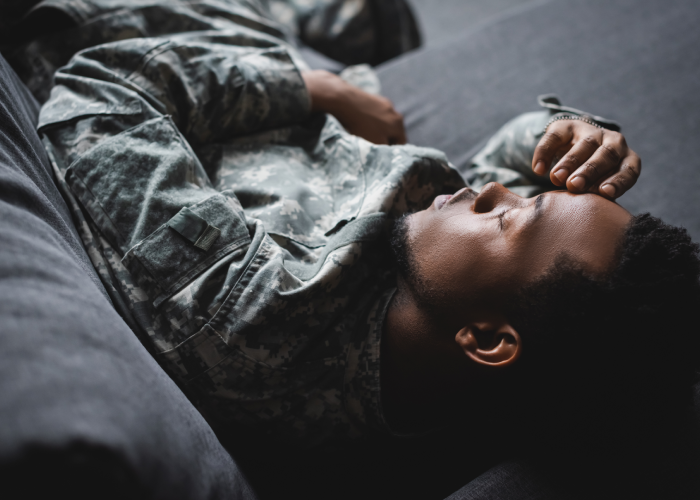Sleep disorders are on the rise in the US Military and are a concern for our veterans as well. Sleep is important for the body and mind to recharge. Sleep boosts the immune system to remain healthy and fight off diseases. Sleep allows the brain function properly to concentrate, think clearly, and process memories. As you would imagine, these are essential for members of our military, yet an increasing number are experiencing disrupted sleep.
Latest research on sleep disorders in active military
Cases of obstructive sleep apnea and insomnia in active U.S. military personnel have dramatically increased since 2005. A recent study reviewed the military’s database of health history and diagnosis codes for medical conditions in to identify cases of sleep disorders. They looked the # of each diagnosis to calculate the rate of incidence per 10,000 personnel. The incidence of obstructive sleep apnea increased from 11 per 10,000 in 2005 to 333 in 2019. The incidence of insomnia increased from 6 per 10,000 in 2005 to 272 in 2019.
That means in 14 years, the percent of military personnel with one of these sleep disorders has increased 30-fold. The increase was seen in all branches of service with members of the Army having the highest. Incidence was higher in men that women. The married, male, white, a higher-ranking enlisted Army service member, and age 40 or older had the highest risk.
OSA and Insomnia while actively serving
Obstructive Sleep Apnea (OSA) is condition where the airway collapses during sleep and there is a cessation of breathing for at least 10 seconds that repeats several times an hour. Traditional risk factors are obesity, body mass index (BMI), neck circumference, and snoring. We know the military has strict requirements for physical and mental health and resilience. However, despite their better overall health, there was still an increasing prevalence of OSA.
To explain the larger number of Army personnel who were diagnosed with sleep disorders, Alan Peterson, PhD, a co-author on the study, offers background. “While military deployments were not evaluated in this epidemiological study, previous research has shown a strong correlation between deployments and sleep disorders, and deployments combined with other chronic health conditions, such as post-traumatic stress disorder and traumatic brain injury,” he says. Peterson is professor of psychiatry and chief of the Division of Behavioral Medicine and director of two national military PTSD research consortia at UT Health San Antonio.
Veterans at risk of Sleep Disorders
This new data and the explanation mean that our veterans are also at risk of OSA and insomnia. The VA recognizes the risk, and when connected to service, a sleep apnea diagnosis qualifies a veteran for VA disability compensation. Properly diagnosing OSA requires a sleep study, which can be done with a home sleep test (HST) with the comfort and privacy of sleeping in their own bed. With diagnosis of at least mild sleep apnea that requires treatment with a CPAP device to assist in breathing, the veteran will receive a VA disability rating of 50%.
Our active military and veterans have proven their strength and dedication through their service, but that doesn’t prevent them from experiencing the same sleep disorders that affect so many Americans. Millennium Sleep Lab is proud to take care of our military and veterans by providing home sleep tests through the VA Community Care Network (VACCN) and as a TriCare provider.
